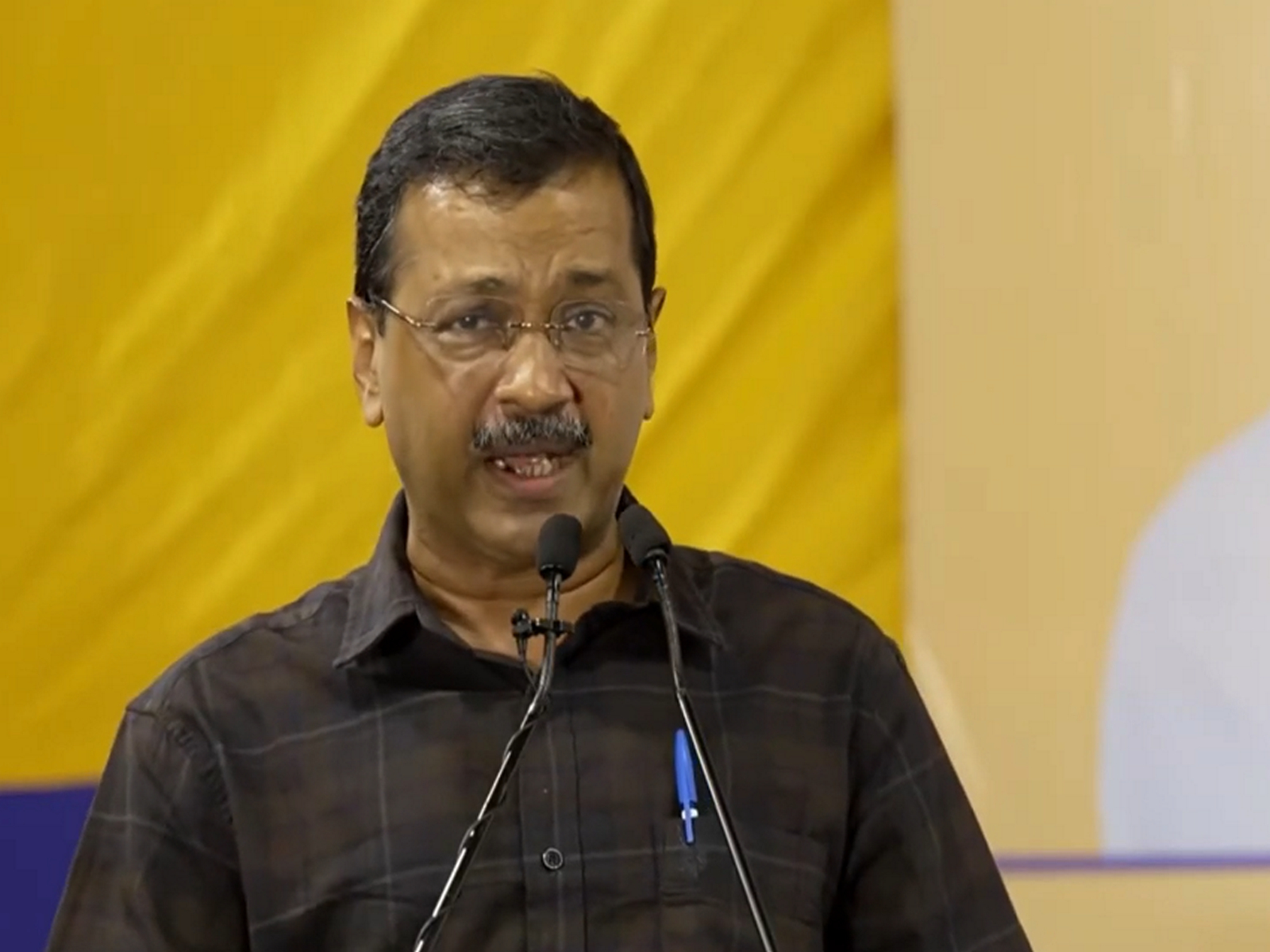On the path to CICA Ministerial Conference on environmental issues
Jan 18, 2024

Astana [Kazakhstan], January 18 : Numerous problems plague the contemporary world, yet are we truly acknowledging the most significant threat to our existence? Environmental challenges impact our society at every level, from the economy to food security and the rise of climate-induced migrations, writes Ugur Turan.
The author, Turan, is an expert on the environmental dimension of the CICA Secretariat.
Humanity is already witnessing the onset of a climate collapse, and unless the trajectory is altered, it will lead to disastrous consequences, such as droughts, rising sea levels, earthquakes, floods, water crises, and widespread extinction. The Copernicus Climate Change Service notes that 2023 has been registered as the warmest year in recorded history.
Research, conducted under Alua Khangerey, a senior team assistant of the CICA Secretariat, indicates a rapid global warming trend since the Industrial Revolution, with a 1.1-degree Celsius increase in the average temperature since 1850. The past four decades have consistently been warmer than their predecessors. While the immediate impact may not be palpable, the sustainability of future generations, nations, and ecosystems is in great jeopardy.
At the Sixth CICA Summit, the President of Kazakhstan, Kassym-Jomart Tokayev, proposed a visionary initiative to host the CICA Ministerial Conference on Environmental Issues in 2024 in Astana, symbolising CICA's unwavering dedication to environmental protection and sustainable development. The conference will also suggest the establishment of a new advisory body - the CICA Environmental Council, which is another initiative proposed by President Tokayev. Considering how vulnerable the region is to climate change, the outcomes of the CICA Ministerial Conference on Environmental Issues are particularly important, Ugur Turan also wrote.
In 2023, Asia will face a series of climate and natural disaster events. In June, Kazakhstan witnessed extensive wildfires, resulting in a significant death toll and the loss of 60,000 hectares of land. By August, Turkiye reported the loss of over 15,800 hectares to forest fires. Tragically, Turkiye also experienced two deadly earthquakes in February with magnitudes of 7.8 and 7.5, claiming over 59,000 lives. Afghanistan's western province of Herat suffered a series of powerful earthquakes, leading to more than 2,000 deaths and raising the number of people requiring humanitarian aid past the 100,000 mark, according to Embassy of Kazakhstan.
In July, Typhoon Doksuri wreaked havoc on the Pacific coast, causing 15.4 billion dollars in damage across the northern Philippines, Taiwan, and China. Moreover, China faced numerous floods and landslides, notably the 2023 Beijing-Tianjin-Hebei Heavy rain and Northeast China heavy rain, resulting in casualties and missing people. South Korea and India also witnessed severe flooding and landslides, leading to deaths and infrastructure destruction. Additionally, a record-breaking heatwave affected several Asian countries from April onwards, setting regional temperature records. For instance, the situation in Mesopotamia, where Iraq struggles with drought.
There is no doubt that vulnerabilities affect the performance of countries committed to the Sustainable Development Goals (SDGs). The best and least performing countries in the CICA region are listed as follows: According to the SDG Index 2023, South Korea leads the CICA region with the highest score in overall sustainable development performance on the 17 SDGs, ranking 31st globally with a score of 78.06. Thailand follows as the second-best performer with 74.74 points and a global ranking of 43. The Kyrgyz Republic is the third-best performer, earning 74.41 points and ranking 45th globally. Other notable performers in the region include Israel (73.97), Russia (73.79), Azerbaijan (73.53), Viet Nam (73.32), China (72.01), Kazakhstan (71.65), Uzbekistan (71.15), and Turkiye (70.78). On the other hand, among the least-performing countries in the CICA region are Afghanistan (49.01), Pakistan (58.97), India (63.45), and Bahrain (63.74). As observed, the less resilient nations in Asia are falling behind in terms of performance compared to other countries due to various issues, including environmental problems, as author Turan writes.
In September 2023, global leaders gathered in New York to inaugurate the 78th session of the General Assembly (UNGA 78) centred around the theme, "Rebuilding Trust and Rekindling Global Solidarity: Advancing Efforts on the 2030 Agenda and its Sustainable Development Goals for Peace, Prosperity, Progress, and Sustainability for All." During UNGA 78, world leaders highlighted environmental problems and their impacts. In parallel, the themes of the concept document of the CICA Ministerial Conference on Environmental Issues, which is currently being worked on online by experts from 28 CICA Member States, are common. The themes discussed included air pollution, climate change, green transformation, biodiversity, and clean water.
Several examples of the statements made by the 28 CICA Member States are given below regarding the themes mentioned above:
Climate Change and Sustainable Practices: Leaders from Jordan, Uzbekistan, Kazakhstan, Tajikistan, Pakistan, Thailand, Bangladesh, Iraq, and the UAE expressed deep concerns about the escalating climate crisis, emphasising its impact on food, energy, and water issues. Azerbaijan, committing to a voluntary reduction of up to 40 per cent in greenhouse gas emissions by 2050, aims to become a green electricity exporter to Europe and plays a crucial role in transregional connectivity projects. Uzbekistan highlighted a significant regional temperature increase, while Kazakhstan underlined Central Asia's vulnerability to a 2°C to 2.5°C temperature rise. Tajikistan, which is highly susceptible to climate change, called for urgent action. Pakistan emphasised climate change's reversal of development gains and advocated for Sustainable Development Goals stimulus implementation. The UAE, hosting COP28, pledged to confront climate change and transform the energy sector, as per the Embassy of Kazakhstan.
Green Transformation Initiatives: Qatar is actively diversifying income sources and investing in clean energy through its sovereign fund. Kazakhstan proposed green job investments, ending fossil fuel subsidies, and promoting a sustainable energy transition away from coal. Kyrgyzstan called for a coalition prioritising climate adaptation. According to the UN Voluntary National Reviews, Tajikistan stands out for producing 98 per cent of its electricity from hydropower, ranking sixth in the world in this aspect. Mongolia, Sri Lanka, China, Kuwait, and Thailand contribute unique green initiatives, from tree planting movements to ambitious renewable energy targets. Kuwait aims for carbon neutrality by 2050 in the oil sector, and Thailand plans a green finance mechanism to boost environmental and social projects, the author also wrote.
Biodiversity and Water Conservation: Uzbekistan is actively mitigating biodiversity consequences by creating green areas with drought-tolerant plants. Jordan, a water-scarce country, faces challenges in ensuring a clean water supply. Tajikistan, a water-rich nation with melting glaciers, is acting through conferences on water action and glaciers' preservation. Kazakhstan highlighted economic challenges due to water scarcity, echoing global concerns. Thailand pledged to improve water management and farming techniques. Iraq is mobilising efforts to form a regional negotiating bloc for cross-border water resources. Egypt, facing a severe water crisis, is exploring water reuse and importing "virtual water." Remarkably, various nations emphasised the need for financial and technological support, sustainable resource management, and green development assistance for vulnerable countries. For example, Korea pledged 300 million dollars to the Green Climate Fund, contributing to carbon emission reduction and a clean energy transition. Also, Qatar highlighted its role in addressing the global energy crisis through investments in liquefied gas.
The shared themes in the UN statements and the CICA Ministerial Conference on Environmental Issues concept paper strongly indicate a new development in CICA's role on the global stage. On the sidelines of the 78th session of the UNGA, CICA and the Kazakh Chairmanship jointly organised an event at the UN headquarters in New York. The purpose was to enhance cooperation between the UN and CICA in advancing sustainable development. Notable speakers from the UN, including Haoliang Xu, Under-Secretary-General and Associate Administrator of UNDP, Armida S Alisjahbana, Under-Secretary-General and Executive Secretary of the UN ESCAP, and Rola AA H Dashti, Under-Secretary-General and Executive Secretary of the UN ESCWA, were featured. Ambassador Kairat Sarybay, the CICA Secretary General, highlighted the organization's contributions to the SDGs, presenting ongoing initiatives such as the planned CICA Ministerial Conference on Environmental Issues in 2024 and ongoing discussions on the establishment of a CICA Council on Sustainable Connectivity. Emphasising collaboration to overcome challenges, the Secretary-General advocated for achieving the SDGs for "a more sustainable and equitable future in Asia and beyond."
Hence, the presented framework indicates the imperative for all stakeholders, including citizens, to treat environmental issues with the utmost seriousness. This underscores the necessity to enhance awareness, extending beyond policy considerations to encompass individual energy consumption and various aspects of public engagement. The significance of the CICA Environmental Conference is on the rise, emphasising the critical need for a thorough exploration of regional and sub-regional synergies and interactions. To foster the sustainable development of Asia, it is crucial to precisely identify vulnerable regions and disseminate best practices. The success of the CICA Environmental Conference outcomes and the dynamic contribution of the anticipated establishment of the CICA Environmental Council to the broader Asian context hinge on the collective efforts of all CICA Member States. In an era where economic development holds paramount importance, advancing with a commitment to environmental sustainability becomes an unavoidable imperative for this era, as author Turan also wrote.


















